Description
1,000 Stars to Light Up your Garden
Snow Rose (Serissa japonica) is a popular flowering shrub that belongs to the family Rubiaceae. Native to Japan, China, and Southeast Asia, it is a small, compact plant with small, glossy, dark-green leaves and clusters of delicate, small, white or pink flowers. The flowers are star-shaped and have a sweet fragrance that adds to the plant’s charm.
Snow Rose is a popular choice for bonsai cultivation due to its size and delicate flowers. It is also commonly used as an indoor ornamental plant as it can tolerate low light and temperature fluctuations. To thrive, the plant requires well-draining soil and regular watering.
Despite its delicate appearance, Snow Rose is a hardy plant that can withstand a wide range of growing conditions. With proper care, it can bloom almost all year round, adding a touch of elegance and beauty to any garden or indoor space.
Despite its beauty and usefulness, Snow Rose is toxic to pets, so care should be taken when choosing its location. Properly cared for, Snow Rose can provide years of enjoyment and health benefits to its owners.
Caring for your Snow Rose
Snow Rose (Serissa japonica) is a delicate and beautiful plant that requires a bit of care to keep it healthy and thriving. Whether you’re growing it as a bonsai or as a traditional shrub, here are some tips on how to care for a Snow Rose plant.
Light
Snow Rose plants thrive in bright, indirect light. They can tolerate some direct sunlight, but too much can burn their leaves. A good rule of thumb is to place your Snow Rose plant near a window that receives morning or evening sun, or in a spot that gets filtered sunlight throughout the day.
If you’re growing your Snow Rose indoors, make sure it’s getting enough light by placing it near a bright window or using a grow light. Snow Rose plants need about 12 to 16 hours of light per day to thrive.
Water
Proper watering is crucial to the health of your Snow Rose plant. These plants prefer moist but well-drained soil. Overwatering can lead to root rot, while underwatering can cause the leaves to dry out and drop.
To water your Snow Rose, wait until the top inch of soil feels dry to the touch, then water thoroughly until water drains out of the bottom of the pot. Discard any excess water that collects in the saucer beneath the pot, as Snow Rose plants don’t like to sit in standing water.
In hot and dry climates, you may need to water your Snow Rose more frequently, while in cooler and more humid conditions, you may need to water less often. Keep an eye on the soil and adjust your watering schedule accordingly.
Humidity
Snow Rose plants prefer a humid environment, so it’s a good idea to mist them regularly or place a tray of water near them to increase humidity levels. You can also place your Snow Rose pot on a tray of pebbles filled with water, making sure the water level is below the pot’s bottom. This creates a humid microclimate around the plant.
If you’re growing your Snow Rose indoors, a humidifier can also be helpful in maintaining the right humidity levels. Aim for a humidity level of 50% or higher.
Temperature
Snow Rose plants prefer warm temperatures between 60°F and 80°F (15.5°C to 26.5°C). They can tolerate slightly cooler temperatures but should be kept away from drafts and cold air.
In the winter, when temperatures drop, Snow Rose plants may go into a dormancy period where they lose their leaves and slow down their growth. During this time, it’s important to reduce watering and fertilization to allow the plant to rest.
Soil
Snow Rose plants prefer well-draining soil that’s rich in organic matter. A good potting mix for Snow Rose plants should be loose and airy, allowing water to drain through quickly. Adding perlite or sand to the potting mix can also help improve drainage.
When repotting your Snow Rose, choose a pot that’s only slightly larger than the current one, as these plants prefer to be slightly root-bound. Repotting should be done in the spring or summer when the plant is actively growing.
Fertilizer
Snow Rose plants benefit from regular fertilization during the growing season (spring and summer). Use a balanced, water-soluble fertilizer every two weeks, following the manufacturer’s instructions for dosage.
During the winter, when the plant is dormant, reduce or stop fertilization altogether. Too much fertilizer can lead to burned roots and damage to the plant.
Pruning
Pruning is an essential part of Snow Rose plant care, especially if you’re growing it as a bonsai. Regular pruning helps to maintain the plant’s shape and promote healthy growth.

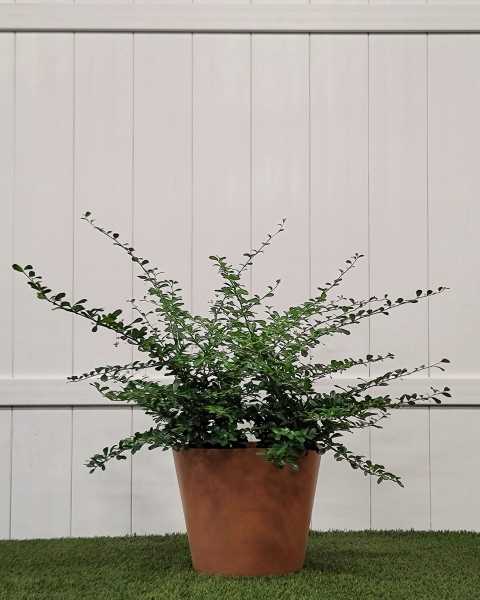
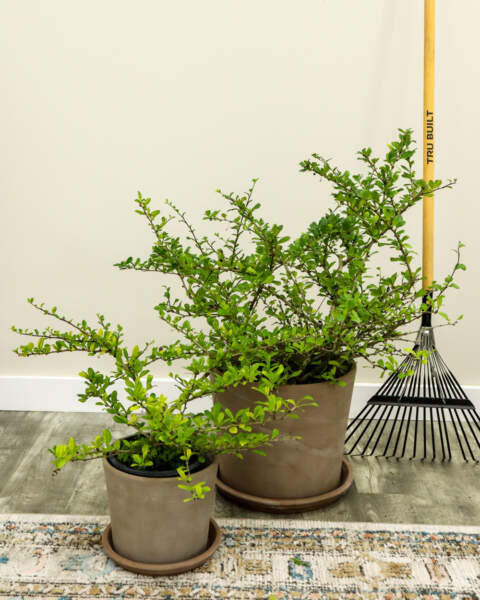
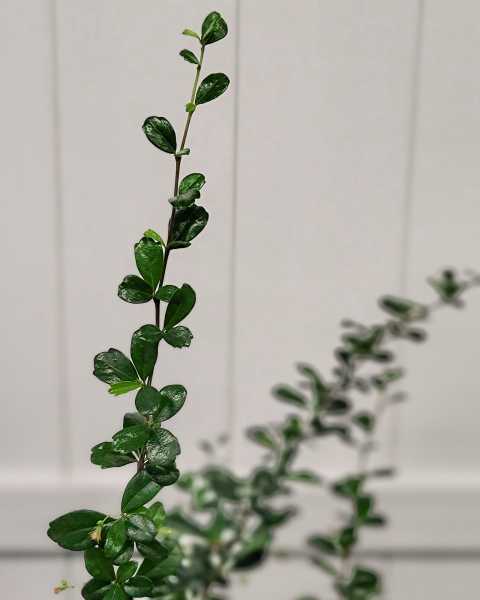
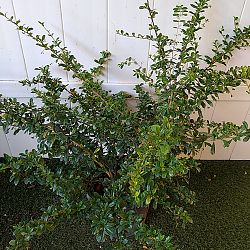
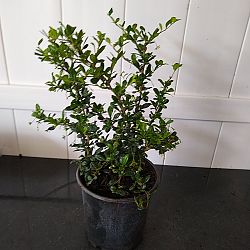
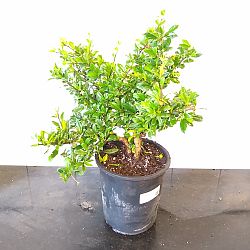
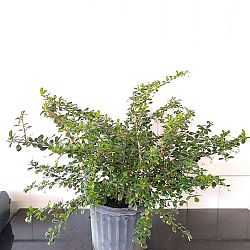
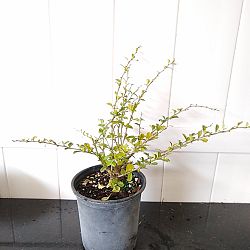
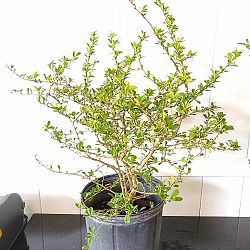
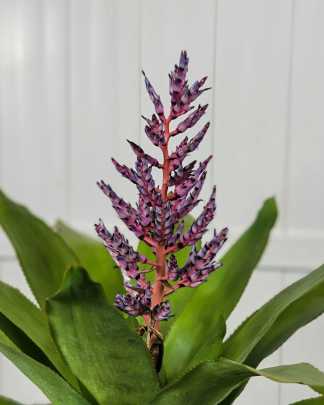
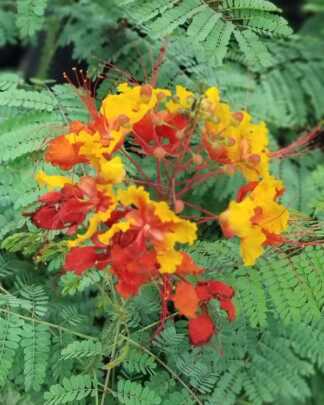
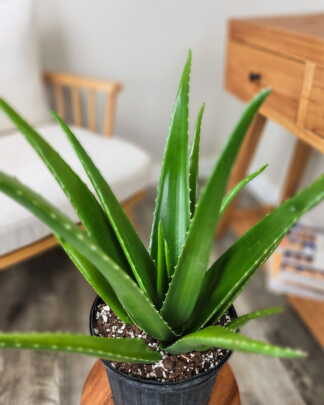
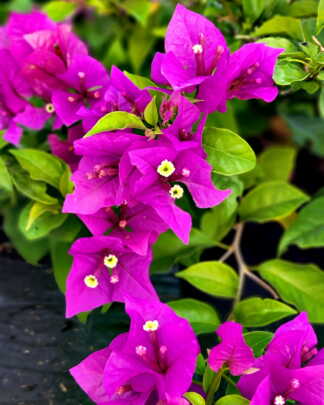
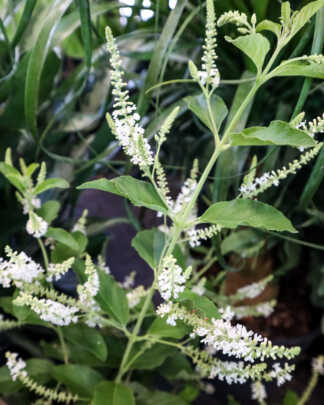


Christy M. (verified owner) –
The plants were well protected during shipping. They were exactly as shown and described. The plants are healthy and look great.
Brent Hedrick (verified owner) –
Arrived vigorous and soil was still fairly damp. Easy order, good lookin plant, very happy thanks.